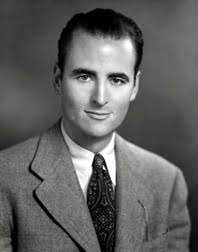Whyte, William Foote

Bio: (1914-2000) American sociologist. William Foote Whyte received his doctorate from the University of Chicago, and taught at the same university, only to later transfer to Cornell University, where he remained until the end of his career. For his doctoral dissertation, Whyte did empirical research in Boston, in a slum where Italian immigrants lived. His research method was participatory observation. He lived with an Italian family and observed the daily life of the residents of that neighborhood. This allowed him to focus more closely on the goal of his research, which was the activities of members of juvenile gangs. This research resulted in the very influential book Street Corner Society: The Social Structure of an Italian Slum (1943). Observing the gang members, but also the wider immigrant society, Whyte discovered a culture that had a special structure, and was caused by forced isolation and poverty. In addition to scientific research, Whyte has been involved in advocating for solving the problems of poverty and poor working conditions in slums.
Whyte later turned his attention to the sociology of work, where he researched various topics: human relations in the workplace, industrial relations, workers' cooperatives, organizations and their activities, management, as well as agricultural production.
Fields of research
Agriculture City Crime Culture Everyday Life Ghetto Immigration Industry Management Poverty Rural Work Working ClassMain works
Street Corner Society: The Social Structure of an Italian Slum (1943);
Human Relations in the Restaurant Industry (1948);
Pattern for Industrial Peace (1950);
Money and Motivation: An Analysis of Incentives in Industry (1955);
The Organization Man (1956);
Man and Organization (1959);
Men at Work (1961);
Action Research for Management (1965);
Organizational Behavior: Theory and Application (1969);
Organizing for Agricultural Development (1975);
Power, Politics, and Progress: Social Change in Rural Peru (1976);
Worker Participation and Ownership: Cooperative Strategies for Strengthening Local Economies (1983);
Higher-Yielding Human Systems for Agriculture (1983);
Learning from the Field (1984);
Making Mondragon: The Growth and Dynamics of the Worker Cooperative Complex (1988);
Social Theory for Action (1991);
Creative Problem Solving in the Field: Reflections on a Career (1997).

